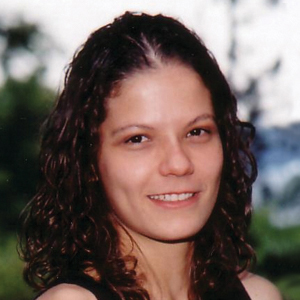Nature or nurture?
What was the tipping point that put my younger self on a path to a career in science? Was it the hours I spent as a child reading books about space exploration or the immune system, playing exotic adventure and strategy video games, or solving puzzles? Was it watching educational programs on public television about the wonders of the universe, the beauty and toughness of the African savannah, or the mysteries of the oceans?
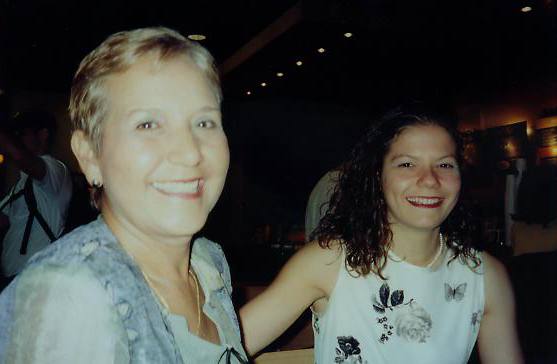 The writer and her mother.
The writer and her mother.
Perhaps it was the long stories that my mom, who was a teacher and a psychologist, told me about lost pre-Columbian civilizations, their amazing cultures and their demise. Maybe it was my uncle, the marine biologist, who poured some intellect fertilizer into my head while we fantasized about the mysteries of the Bermuda Triangle, survival in the jungle or how to come up with brand-new sports games. At the time, these games felt like the most fun games ever invented, but now they only seem like awkward variants of baseball, my uncle’s favorite sport.
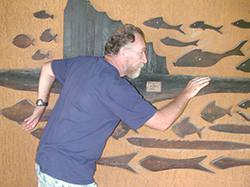 The writer’s marine biologist uncle.
The writer’s marine biologist uncle.
Maybe it was just the flow of knowledge following a steep gradient from my mom’s and her friends’ minds to mine. Those friends, an ever-expanding group of teachers, physicians, biologists, sociologists and psychologists, would spend endless hours on somebody’s porch or at the beach talking about everything under the sun. Eavesdropping on their conversations was always a treat for me. It didn’t matter whether they were talking about the latest medical advances, the best cuts of meat for a barbecue, or world politics or social justice. Whether I could understand their discussions was also beside the point. What mattered most was that I was there and part of something I perceived to be exciting and extraordinary.
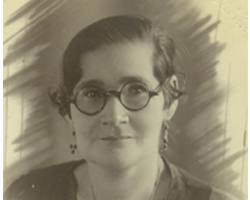 Great-grandmother Mimi, the healer.
Great-grandmother Mimi, the healer.
For all I know, I even may have had a genetic predisposition to become an experimentalist. Family stories make reference to my great-grandmother Mimi, who was a sort of shaman in the little town hidden in the low mountains of northeastern Venezuela where my mom was born. Mimi was the healer to seek out when health troubles struck. Since access to modern medicine was a journey of hours in those years, her healing powers and recipes for special concoctions were said to cure relatives and friends of all sorts of afflictions.
It may not be a single reason but a combination of factors that shaped me. Whatever those factors are, I am glad that I decided to take this journey and that I never have stopped exploring, asking questions, and feeling the joy of discovery and learning in daily life. Biochemistry became my path, and studying proteins’ functions turned out to be my passion. It is hard to believe I ever could get tired of peeking into the amazing lives of proteins. Learning what they do and how they do it is like going on an expedition to a faraway, exotic place with no map to show the way; if you are lucky, a few tales told by those that came before guide your first, hesitant steps.
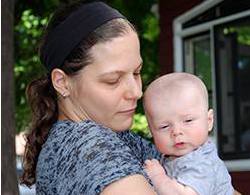 The writer and her son.
The writer and her son.
Now I believe it is my turn to pass the torch. There is a new member of my family, a little one with insatiable curiosity. I cannot wait to share with him the stories that made me dream when I was little as well as the ones that amaze me these days. I hope he shares my hunger for knowledge and my need to see the magic of the universe and the unbelievable beauty of life and nature. I will try to tickle his inquisitive mind with fantastic questions and encourage him to explore and to learn. He won’t have to become a scientist to be able to enjoy exploring, but I want to make the process fun for him. I want him to love what we do together and to grow up to live his life doing what he loves most, whatever that turns out to be.
Enjoy reading ASBMB Today?
Become a member to receive the print edition four times a year and the digital edition monthly.
Learn moreGet the latest from ASBMB Today
Enter your email address, and we’ll send you a weekly email with recent articles, interviews and more.
Latest in Opinions
Opinions highlights or most popular articles

Sketching, scribbling and scicomm
Graduate student Ari Paiz describes how her love of science and art blend to make her an effective science communicator.

Embrace your neurodivergence and flourish in college
This guide offers practical advice on setting yourself up for success — learn how to leverage campus resources, work with professors and embrace your strengths.

Survival tools for a neurodivergent brain in academia
Working in academia is hard, and being neurodivergent makes it harder. Here are a few tools that may help, from a Ph.D. student with ADHD.

Hidden strengths of an autistic scientist
Navigating the world of scientific research as an autistic scientist comes with unique challenges —microaggressions, communication hurdles and the constant pressure to conform to social norms, postbaccalaureate student Taylor Stolberg writes.

Black excellence in biotech: Shaping the future of an industry
This Black History Month, we highlight the impact of DEI initiatives, trailblazing scientists and industry leaders working to create a more inclusive and scientific community. Discover how you can be part of the movement.

Attend ASBMB’s career and education fair
Attending the ASBMB career and education fair is a great way to explore new opportunities, make valuable connections and gain insights into potential career paths.

